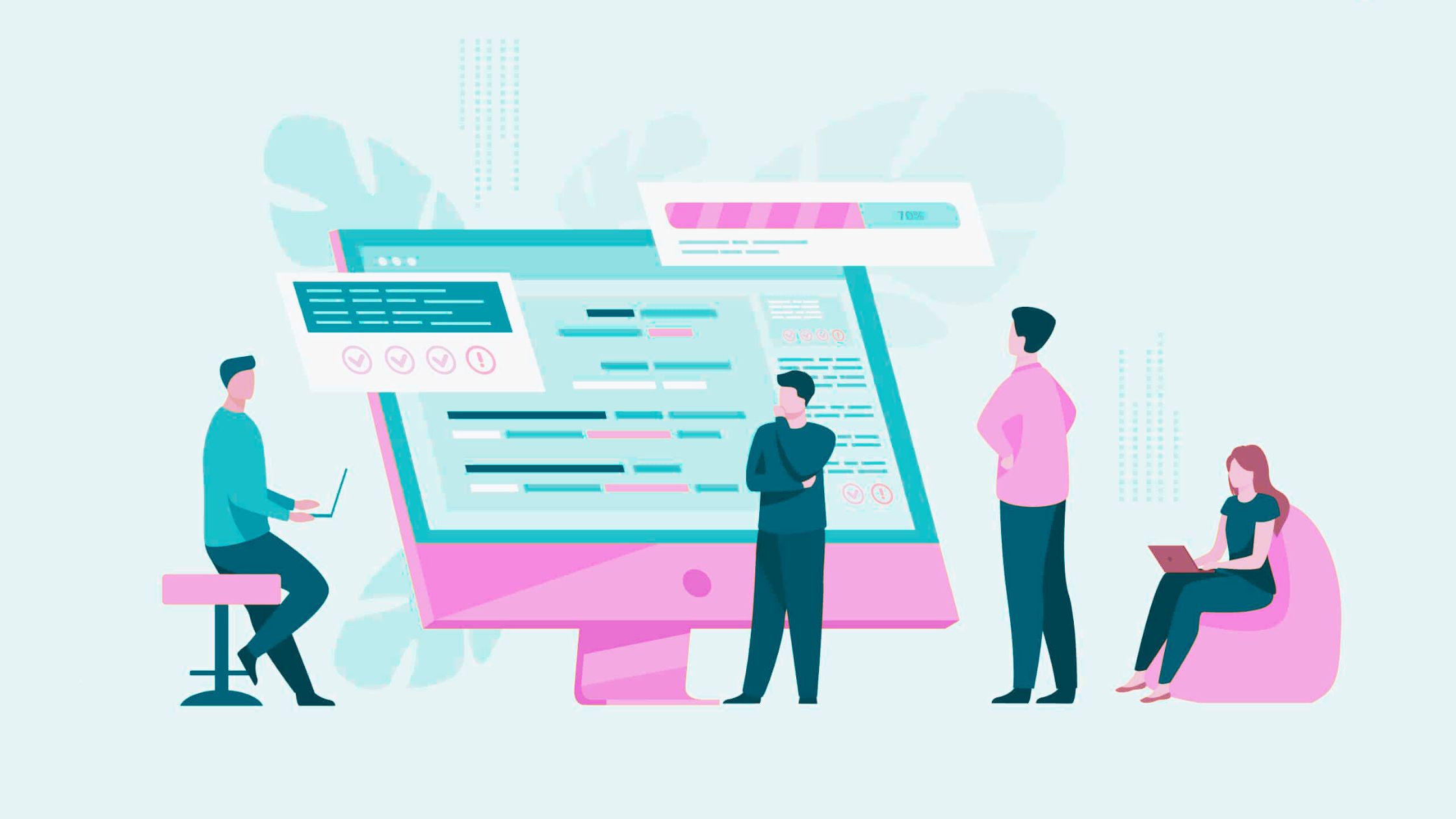Navigating the intricate landscape of the software industry is a continuous journey, ever-transforming and adapting. The aftermath of the COVID-19 pandemic ushered in a heightened technological demand, reshaping the way we work and unlocking unforeseen possibilities.
In this dynamic realm, businesses need to keep a vigilant eye on emerging technologies, embracing innovation to stay ahead. Simultaneously, a myriad of changes and introductions is unfolding, promising excitement and opportunities for scaling your business.
The pervasive influence of digital transformation has accelerated technological shifts, spawned new business models, and sparked unprecedented changes. The growing appetite for personalized, dynamic online experiences and instant services has fueled a demand for cutting-edge technologies to revolutionize industries, providing swift and efficient solutions to address everyone's pain points.
This surge propels the software industry into a new, more advanced era, setting the stage for key software development trends to be recognized and adopted in 2023, creating a profound impact.
Crypto and Blockchain Development
It's no surprise that the growth of blockchain app development is soaring, with its influence expanding across various market sectors including manufacturing, media, finance, telecom, healthcare, energy, and even government. The substantial interest from diverse sectors is contributing to the global popularity and widespread adoption of blockchain-based apps.
The promising future trends of blockchain technology are particularly encouraging for SMEs and startups. However, before delving into this subject, let's first grasp the concept of blockchain.
Edge computing
The influence of Cloud computing is undeniably enduring, set to leave a lasting impact in 2023. Yet, it's not the sole focus of innovations in the tech landscape.
In scenarios where real-time data processing is imperative despite suboptimal bandwidth, Cloud computing becomes impractical. The inability to access remote data centers during Internet disconnection further compounds the issue.
Enter Edge computing, offering a solution by shifting data processing to the edge of the local network. This enables users to seamlessly engage with software both online and offline. In an industry where a mere millisecond of downtime translates to substantial losses, edge computing emerges as the optimal solution.
Statistics indicate a robust growth trajectory for the edge computing market, unveiling endless opportunities for edge networks in the future.
Opportunities for low-code/no-code software development
The growing need to deliver rapid and efficient solutions to customers has propelled the popularity of low-code/no-code development. This surge has led to the widespread adoption of low-code platforms, facilitating the swift creation of applications. These platforms offer pre-built blocks with drag-and-drop functionalities, expediting the development of both mobile and web-based apps.
While certain companies express reservations about the flexibility and security of software developed using these platforms, advancements in the process have addressed these concerns, ensuring quicker software development. Research even projects a global surge in the adoption of low-code by 2030.
Noteworthy low-code/no-code development platforms such as Outsystems, Mendix, and Appian have gained popularity. Embracing low code can bring numerous benefits to your expanding business.
Mobile Apps Take the Front Seat
In today's competitive market, simply having a web app is insufficient to make a significant impact and surpass competitors. With the widespread use and reliability of mobile devices, an interactive and fully functional mobile app is essential to drive the majority of your traffic.
If your business lacks a website optimized for mobile apps, you are missing out on substantial opportunities. To ensure your business can grow and adapt to changing market demands, it's imperative to embrace mobile app development utilizing cutting-edge technologies such as Node.js, Ionic, React.js, Python, Flutter, and others.
Responsive mobile apps not only position you competitively but also come with potential benefits for any business. Emerging technologies like AR/VR are playing a crucial role in bridging the gap between the physical and digital realms of mobile apps.
Beyond AR/VR, companies are achieving success by integrating AI, Beacon technology, IoT, blockchain, and other innovations to create more intelligent and innovative mobile apps. This strategic approach enhances the overall user experience and keeps businesses at the forefront of technological advancements.
Integrated Blockchain Solutions
With the growing demand for decentralized services and products, blockchain is poised to make a significant impact in the upcoming year. In the current landscape, companies heavily rely on the cloud for information storage. What if we decentralize and encrypt that information using blockchain?
In the years to come, the development of secure ways to decentralize data is inevitable, ensuring enhanced data security. Yet, there remains room for exploring potential and innovative methods to access and analyze this decentralized information.
The practical usage of Non-fungible tokens (NFTs) will become more widespread in the new year. For instance, NFT tickets for concerts will elevate customers' backstage experiences and memorabilia. NFTs are poised to revolutionize the way we interact with modern-age digital products and services, simplifying contracts between parties.
In 2023, brace yourself for a whole new world of opportunities in blockchain.
Read More: Ruby On Rails Development Company in the USA
The Boom of the IoT
In today's market, intelligence is embedded in everything, from smart devices to interconnected homes. The ability to control multiple functions from a centralized point without human intervention has become a reality, thanks to the implementation and integration of IoT solutions.
IoT is extending its benefits across diverse sectors, spanning IT, manufacturing, and healthcare, streamlining tasks in every domain. The once-dreamed concept of integrated cities has materialized, with IoT devices alleviating congestion, optimizing traffic management, and fostering greater connectivity among people.
The usage of IoT is projected to witness a Compound Annual Growth Rate (CAGR) of 10.53% over the next five years. This impending era promises streamlined tracking and data collection, user engagement control across IoT devices, and transformative impacts on inventory management and shipping. The insights garnered through IoT are driving the demand for AI and analytics integration.
To maintain a competitive edge, it is crucial to harness the power of IoT. Engaging with dedicated development companies can empower your business, providing the expertise needed to navigate and scale in this dynamic landscape.
AI-powered chatbot
As you navigate today's websites, you've likely come across a chatbox popup facilitating instant connectivity with customer support. These are known as conversational chatbots, designed to engage in online conversations.
Chatbots offer an efficient way to connect with potential customers promptly, understanding their product or service preferences. They are progressively supplanting traditional interactions that involve human agents with the application of AI.
Over the years, chatbots have emerged as a future-ready solution for businesses looking to scale and grow.
Introduction to ChatGPT
Another notable achievement in the IT industry is the introduction of chatGPT, based on GPT-3.5, by OpenAI in November 2022. This AI is designed for long-form question-answering, demonstrating the ability to respond conversationally even to intricate queries.
This represents cutting-edge technology as chatGPT is trained to comprehend the subtleties of human questions, enabling it to provide responses that mimic human-like understanding. Its capacity to deliver responses of human quality has the potential to revolutionize various industries.
According to Stanford, GPT-3 can perform tasks it was not explicitly trained for, such as translating sentences from English to French.
The Rising Trend of Marketplace
The surge in online purchasing has given rise to a new trend, significantly boosting the adoption of the eCommerce market. Recognizing the heightened demand and popularity of e-commerce platforms, businesses are now concentrating on establishing a mobile e-commerce presence. This unexpected acceleration in eCommerce sales gained momentum after the COVID-19 outbreak, propelling online business transactions to unprecedented levels.
The exponential growth of the marketplace's popularity is evident, with outstanding platforms like Amazon, Myntra, Flipkart, and others leading the way. A substantial percentage of people now prefer shopping online, emphasizing the need for more platforms of this nature to further globalize the eCommerce market. These mobile apps are commonly referred to as marketplace apps.
Anticipate a notable surge in the global demand for more seamless marketplace experiences.
Conclusion:
The landscape of software development has been transformed by advanced technologies. The availability of a myriad of features, including pre-built templates and drag-and-drop functionalities, has simplified the process of creating innovative and intelligent apps.
The pandemic has compelled businesses to extend their gaze beyond established business models and embrace new digital strategies and technologies like IoT, AI, ML, and blockchain, among others.
You can connect with us with your requirements if you have an idea for a new project.. We stand ready to assist your business in crafting next-generation software through our practical and proven software development services, harnessing the latest market trends.




Comments (0)